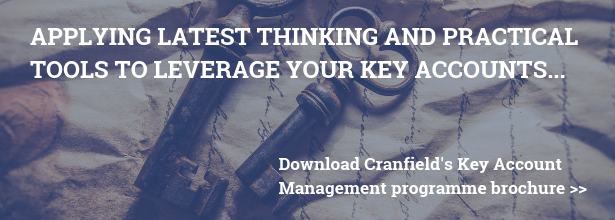
As a result of progressive globalisation and industry consolidation, International Key Account Management (IKAM) has become an increasingly significant topic for many organisations and managing international and pan-geography key accounts where the customer and/or the supplier may be operating in a number of different countries is a challenge for many companies. The international dimension brings some further complexities to the management of already large and complex customers and adds a number of fundamentally different aspects that are not so evident in local KAM.
These include, for example:
- cross-cultural issues (to do with, for example, people, systems, processes)
- the management of globally dispersed and cross-cultural teams
- the management of global versus local issues and conflict
- managing global logistics competencies
- the location of Global Account Managers
- the management of global (and cross-cultural) communications.
Our research has identified four different types of Key Account Management (KAM):
- Local Key Account Management (LKAM)
LKAM is where the Key Account is managed within a country geography..
- Multinational Key Account Management (MKAM)
MKAM can be a constructive approach where the customer is in a few international countries and it makes sense to manage them across those countries.
- Regional Key Account Management (RKAM)
RKAM can be a good way of organising if the customer is regionally based, for example, largely in Europe or largely in Asia Pacific or North and South America.
- Global Key Account Management (GKAM)
The most complex form of international KAM. This is where the relationship with the customer is a fully global model and both the customer and the supplier have the capability to operate on a global basis. In reality, some organisations are executing all four types of KAM across their key account portfolio.
But is implementing any form of IKAM always the right strategy for organisations?
If you can answer YES to most of the following statements then an IKAM approach may be the right way to manage your customer(s):
- I have a number of customers that are international.
- My customer(s) is asking to be supplied on an international basis.
- I have systems and process than can operate on a pan-geography basis.
- I have key account managers who have international capability.
- My customer is capable of being managed at a pan-geography level.
- I will gain business efficiencies and better Return on Investment (ROI) with international KAM.
- The customer(s) will get more value from international KAM.
However, if most of the answers are NO, then it is likely that an LKAM approach will still be more appropriate.
One of the biggest challenges of IKAM is managing the tensions between the Global level and the Local level within organisations. This isn’t just within the supplier but also within the customer organisations as well. Some common factors include:
- Misalignment of goals and Key Performance Indicators (KPIs) between the global and local levels.
- Misalignment of rewards and compensation.
- The questions of “who takes the sale?” or “who made the sale?”
- The global level being seen as interfering by the local level leading to country managers ignoring the global level and encouraging their staff to do so too.
- While the customer may be an important account in some countries, in others it is not even on the radar as a key customer.
- Different levels of customer service, including pricing.
- Customers also do not adhere to the global or regional contract or agreement and also continue to act locally as they please.
So, there are many complexities and challenges to managing international key accounts but the world could be your oyster.
Want to find out more? International Key Account Management is covered in more detail in the Kogan Page book “Implementing Key Account Management”. Take a look to see how to manage international customers effectively.
Our work in this area is critical to achieving successful key account management programs for organisations looking to succeed at managing key account customers. For the past twenty years, Cranfield has pioneered the development of Key Account Management research in Europe. Working with world leading businesses to adopt new frameworks to fully leverage key relationships and strategies. This new frontier knowledge is continually integrated into our Key Account Management Programme.
Blog produced by: Dr. Sue Holt, visiting academic and programme director on Cranfield School of Management Key Account Management Programme. Also facilitates on the KAM Best Practice Research Club.




